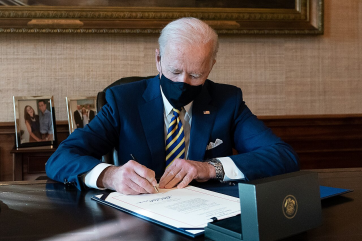Oxford University's Vice-Chancellor Exit Raises Eyebrows: £423,407 Awarded on Top of Annual Salary
By Joy LiwanagFormer Oxford University vice-chancellor Dame Louise Richardson's departure is under scrutiny as financial reports reveal a £423,407 award, equivalent to a year's salary, in addition to her regular pay. The reports detail a total expenditure of over £1 million on the employment of both Dame Louise and her successor Irene Tracey during the academic year 2022-23.

Dame Louise Richardson's Compensation Details
Dame Louise's annual salary was £422,000, and she received £176,000 for the five months she served between August 2022 and the end of the year. An additional bonus, described as recognition for exceptional leadership during the pandemic, amounted to £23,000. Factoring in benefits, pension costs, and a substantial £423,407 paid in lieu of a sabbatical entitlement, Dame Louise's total remuneration reached £712,000.
READ ALSO: Europe's Higher Education Horizon: A Look Into 2030 Targets And Challenges
Successor Irene Tracey's Compensation
Professor Tracey, who succeeded Dame Louise, opted to forgo an 8.4% pay rise that had been proposed for her predecessor in 2019. Instead, she chose to absorb nationwide pay rises given to all university staff. In the seven months covered by the financial reports for 2022-23, Professor Tracey received a basic salary of £232,000. Additional benefits brought her total remuneration to £336,000.
Oxford University's Expenditure
Oxford University's spending on the two vice-chancellors during the specified academic year totaled £1.05 million. Charles Harman, the independent chair of the committee responsible for setting the Oxford vice-chancellor's salary, defended the figures, emphasizing the complex responsibility of leading one of the world's highest-ranking universities. Harman highlighted the arrival of Irene Tracey as the new vice-chancellor, who chose not to accept her predecessor's pay rise in 2019.
Comparison with Other Russell Group Universities
An analysis of Russell Group universities reveals an average total remuneration of £388,000 for vice-chancellors. This marks an increase from the previous year's average of £377,000 across 21 institutions. The financial reports show varying compensation across different universities, with the London School of Economics spending £574,000 on Dame Minouche Shafik's final year as vice-chancellor.
The University of Cambridge spent £499,000 on the three vice-chancellors it employed during the academic year, while Imperial College London paid £476,000 to Hugh Brady in his first year. At the University of Exeter, vice-chancellor Lisa Roberts received a bonus of £50,750, bringing her total remuneration to £405,000.
Scrutiny and Transparency in Executive Compensation
The disclosure of executive compensation at leading universities continues to spark discussions about fairness, transparency, and the allocation of resources. As institutions grapple with financial challenges and navigate the changing landscape of higher education, scrutiny over such payouts raises questions about the justification for substantial awards and the broader governance of university leadership.
While universities defend the high remuneration for top executives by emphasizing the challenging nature of their roles and the need to attract and retain top talent, critics argue that such payouts contribute to rising tuition fees and exacerbate financial pressures on students. The tension between the need for competitive compensation to attract qualified leaders and the imperative for responsible financial stewardship remains a central concern in higher education.
The financial details surrounding Dame Louise Richardson's exit from Oxford University shed light on the complexities and debates surrounding executive compensation in higher education. As universities strive for financial sustainability and accountability, the transparency of these figures remains crucial for stakeholders, including students, faculty, and the public.
Balancing the competitive nature of leadership compensation with the imperative for responsible financial management is a delicate task for universities. The scrutiny over such payouts underscores the broader need for transparency, fairness, and a nuanced understanding of the intricate challenges faced by academic institutions in the contemporary landscape. As higher education institutions navigate these complexities, the conversations around executive compensation will likely continue to evolve, shaping the future governance and financial practices of universities.
RELATED ARTICLE: Financial Pressures In Edinburgh: Scottish Universities, Local Authorities, And Legal Services Navigate Austerity Measures








